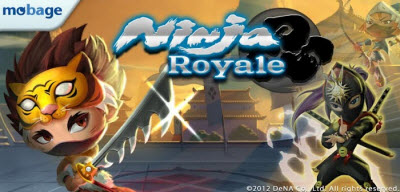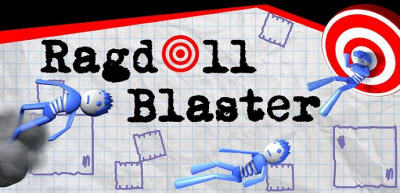GamesBeat: Some people in the development community are having a tough time with user acquisition now. Costs are rising. How do you look at that?
Young: Well, the challenge is actually not just the cost side, it’s the lifetime value (LTV) side. So really, what they’re saying is they’re saying, “Oh, cost-per-install CPI on iOS, when it was allowed (Apple banned it), was a really cost-effective way to get downloads.” Although the dirty secret of CPI was that it was not a great mechanism to get organic adoption. It was just a mechanism to get you up in the chart so that new users, organic users, could discover you. As the mix of users shifts from a hundred percent iOS to 50 percent Android, 50 percent iOS, one factor is the impact of the charts in Android. Even though CPI is still allowed in the Android ecosystem, it’s radically diminished.
The number-one place you can get customers today is through the Google promotions, and the number-two place you can get customers is through paid advertising. The number-three place is chart position. So that’s one of the reasons, in aggregate, that the cost is rising. You’re having to spend money on paid advertising. And being experts at customer acquisition through paid advertising is a non-trivial challenge for lots of developers.
So really, what that’s about is identifying the high-value customers through the most cost-effective networks and marrying that cost of acquisition, no matter what it is, with the lifetime value of your customer. And if the lifetime value of your customer is low, there’s no amount of marketing money that you can spend that is actually going to be worth it. That basically boils down to two key metrics. One is, what’s the return rate of your software? What’s the retention rate of your software? And then, what’s the opt-out? At the end of the day this all boils down to getting a lifetime value that’s higher than the cost of acquisition. If you can’t do that, then you can’t run a scaled business in the space.
GamesBeat: Can you see this actually putting some mobile game companies out of business?
Young: Yeah. I just think the scale of businesses that people want to build might be harder to get to.
 GamesBeat: On Apple, is there anything new for your platform?
GamesBeat: On Apple, is there anything new for your platform?
Young: We have three titles that are live on iOS. Ninja Royale, Blackjack, and Putt Putt Penguin. So it’s sort of like we have a first-party Japan title, first-party Freeverse title, and a third-party title from OMGPOP. That’s the first test set of titles, we’re not scaled on that yet. We’re just going through the same process, frankly, that we went through on Android, when we released the first set of titles just to understand how everything is working and making sure that things are functioning the way that we want them to.
Those went live on recently. About four weeks ago, we opened up the developer portal to allow developers to start submitting iOS applications and moving them through the Apple approval process, so we have a pipeline of those things going on right now. And it’s a scaled network. It fits seamlessly into our cross-network, so users can be moved around from inside the network to the Mobage network. We don’t do CPI because that’s not allowed, but we can cross-promote other titles, and we can notify users of title A that something else in the Mobage network might be appealing to them. That push notification framework that we have is proving to be very powerful, especially on Android.
GamesBeat: So do you have enough freedom with the iOS platform to enable Mobage titles to take off?
Young: I’m not concerned with the platform on iOS, if that’s the question. I think you have to do a lot more on the server and a lot less on the client, because you can’t just aggregate everything together into a single application or have a single currency. But we’re still building a game graph. We still understand those customers. We’re still able to target and communicate directly with those customers. We’re able to introduce them to titles in the service.
That’s what you want, right? At the end of the day, a platform needs to provide developers, whoever they are, first- or third-party, with access to audience and monetization.
GamesBeat: What are some of those rules of the road for having a fair platform? I know you guys got sued by Gree for antitrust allegations. That suggests that some people think the way you set up this platform matters a lot, on the fairness level.
Young: That’s a very specific example. So, Gree is a competitor. What Gree contended, in two separate cases, in on the one hand that we were operating a practice where we would say to a developer, and this is just in Japan, “If you go to our competitor’s platform we won’t give you the same type of marketing support that you would get if you were exclusive to us.” There were no charges brought by the FTC in Japan. There were some practices that we needed to correct, and that was about a year and a half ago. And then Gree has sued us for a feature in a fishing game that is on the Gree network, that is a different issue entirely. I think it’s important to understand that DeNA and Gree have a very competitive relationship. We choose not to just sue for the sake of suing, or make claims, and Gree operates their business differently.
 GamesBeat: Does it come out to the same kind of fairness issues that exist among the console makers, like Microsoft, Sony, and Nintendo. You have to follow rules or developers get all upset?
GamesBeat: Does it come out to the same kind of fairness issues that exist among the console makers, like Microsoft, Sony, and Nintendo. You have to follow rules or developers get all upset?
Young: I think what you need to do is you need to basically put developers’ interests at the center of what you’re doing. I don’t really differentiate or delineate between a first-party developer and a third-party developer in that regard. The customers that our platform teams have are studios, and those studios can be first-party studios or third-party studios. We listen to the needs of both. Now, having first-party studios does allow you to get insight very quickly into what challenges are facing developers, that might not necessarily be readily apparent when you’re dealing only with third parties. I think that’s in the best interests of the developers at the end of the day.
GamesBeat: What is your timeline for making more news in 2012?
Young: I think the first half of 2012 is going to be about getting these first-party titles out and tuned and beginning to scale across iOS and Android and the west and Japan. And I think the second half of the year should be about really scaling the business. So I think those are the general themes for the year. 2011 was signing lots of developers, releasing the platform, making the necessary investments. And also merging the company. It’s been non-trivial to take a western startup and a Japanese publicly traded company and blend those two things together. I think we’ve done that now, we work well together, we’re going to try to capitalize on that.
GamesBeat: Apple has cracked down on third-party marketing services that guarantee placement in the top 25 ranks. Have you followed much of that?
Young: Oh, like the rogue bots, or the human bots? I think Apple should crack down on that, yeah.
GamesBeat: I think it’s a sign of something in the market, though. Developers turn to their services because they’re not getting something from legitimate middle companies or Apple.
Young: Maybe. Discovery remains a problem on all of these devices, right? These application stores. Whether it’s Apple or Android. I think that maybe what you’re seeing there is, “OK, wow, we can’t really influence what Apple promotes, we can still influence the chart rankings, and on iOS the chart ranking is a really big driver of downloads.” So to the extent that you only ever have those two channels, people are always going to try to find ways to manipulate chart position and generate organic adoption.
I think Apple’s acquisition of Chomp is really interesting, it shows intent to solve the discovery problem. Clearly Genius just doesn’t work. It’s not good. But I think Chomp does work or can work. I think that will be good. But at the end of the day…you could make the same point about crime. Crime exists because society is not serving the need of a segment. It doesn’t make it right to do it. I think that Apple’s right to crack down on it.
GamesBeat: But it was not something that was so big that it shows up on your radar as your competition?
Young: No. What we’re trying to do is we’re trying to build the biggest audience of gamers in mobile. We want to be able to put the very best games in front of that audience, and allow them to play together with other people who share their same interests. What we’ve seen in Japan is that underwrites and fuels a really big business. It’s easy to dismiss Japan and the Japan experience because it is such a culturally different place. But when you strip away the cultural differences and you just look at the user behavior, the user behavior in social games in Japan is almost exactly the same as the user behavior in social games in the west. So as long as you can find the right applications to release, then the opportunity for that business exists. That’s what we’re trying to create.
![]() GamesBeat 2012 is VentureBeat’s fourth annual conference on disruption in the video game market. This year we’re calling on speakers from the hottest mobile, social, PC, and console companies to debate new ways to stay on pace with changing consumer tastes and platforms. Join 500+ execs, investors, analysts, entrepreneurs, and press as we explore the gaming industry’s latest trends and newest monetization opportunities. The event takes place July 10-11 in San Francisco, and you can get your early-bird tickets here.
GamesBeat 2012 is VentureBeat’s fourth annual conference on disruption in the video game market. This year we’re calling on speakers from the hottest mobile, social, PC, and console companies to debate new ways to stay on pace with changing consumer tastes and platforms. Join 500+ execs, investors, analysts, entrepreneurs, and press as we explore the gaming industry’s latest trends and newest monetization opportunities. The event takes place July 10-11 in San Francisco, and you can get your early-bird tickets here.
VentureBeat's mission is to be a digital town square for technical decision-makers to gain knowledge about transformative enterprise technology and transact. Learn More
